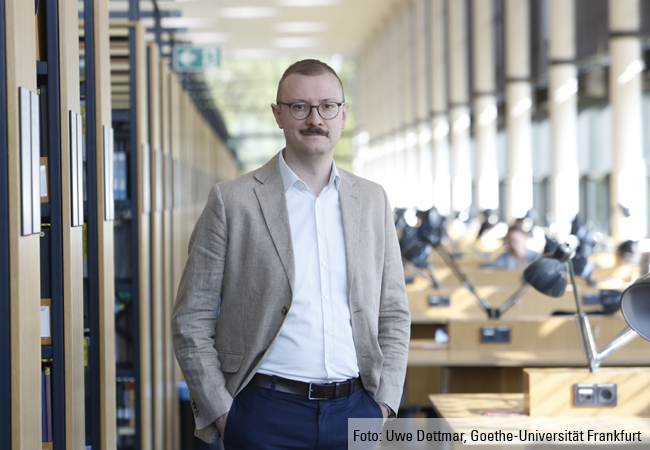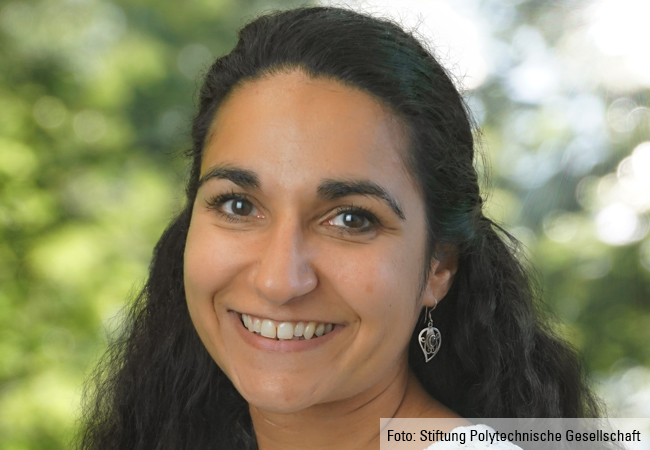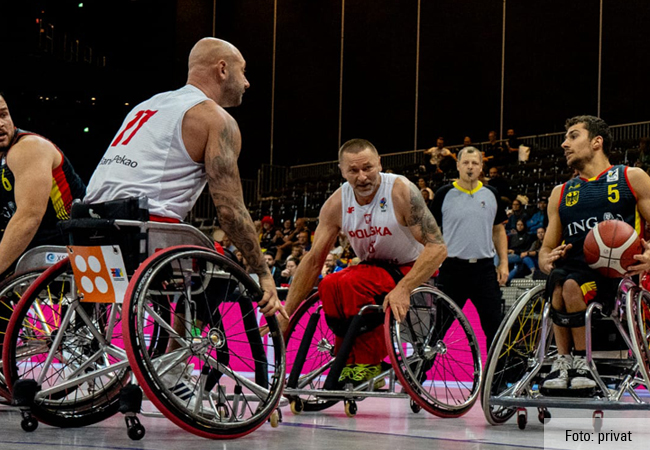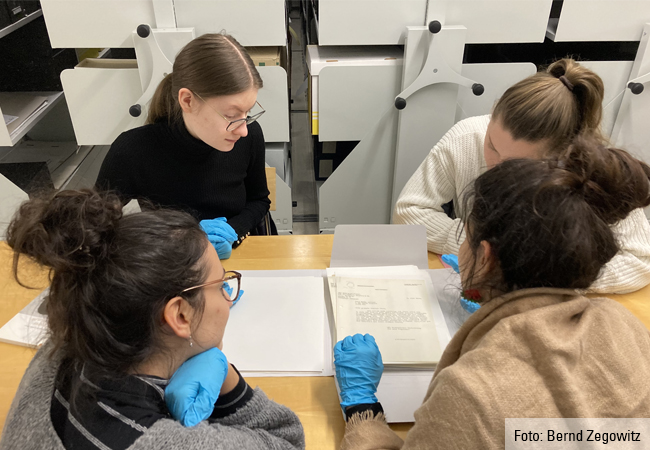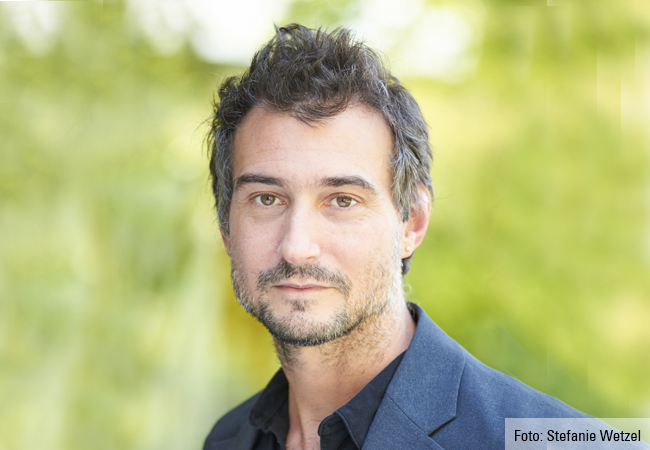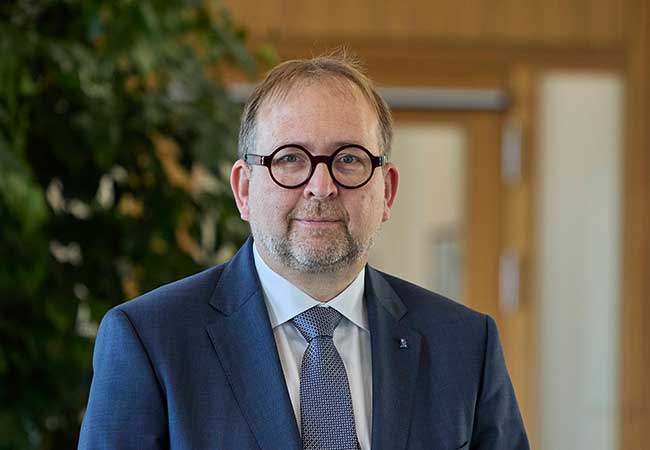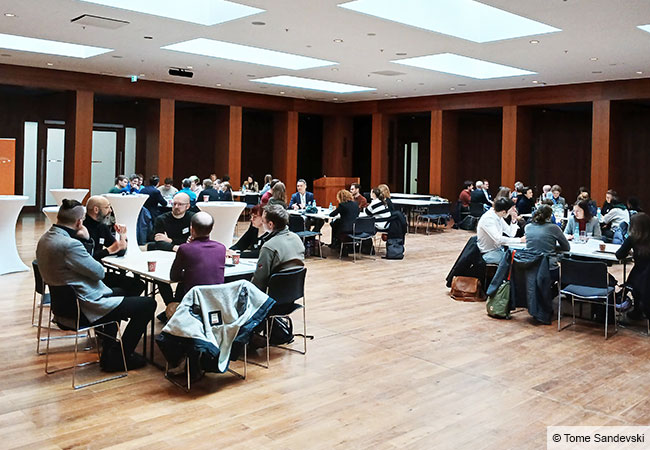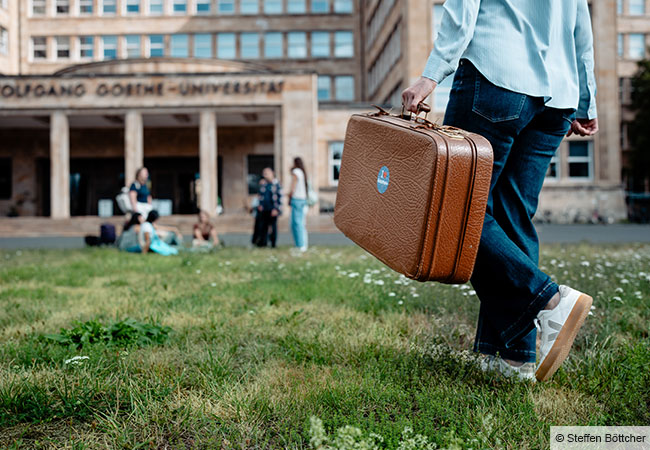How do science and practice come together? At the “Bridging the Gap” festival, held in late April this year, the Research Institute Social Cohesion (RISC) presented new formats for science communication. UniReport spoke with RISC knowledge transfer officers Katja Maasch and Manuel Steinert.

UniReport: RISC deals with the question of how social cohesion evolves. Your festival asked how science and practice come together. Why does this topic play such an important role for your research design?
Katja Maasch (KM): RISC is funded by the Federal Ministry of Education and Research (BMBF) to conduct interdisciplinary basic research, but at the same time also applied research on questions of social cohesion. In this sense, it has two pillars: Research and knowledge transfer play an equally important role – which means that our research sees itself at the service of society.
Manuel Steinert (MS): We generate knowledge on issues that are very important for society, such as which divisive trends can currently be identified and ways to strengthen social cohesion. The corresponding results are useful for various target groups, including political decisionmakers or civil society. However, when we established the institute, we made a conscious decision not to call ourselves the “Research Institute for Social Cohesion” so as not to preempt our research agenda from the outset. Cohesion can also have a destructive effect, for example when certain groups are excluded. Part of our knowledge transfer activities is to explain such ambivalences.
UniReport: The institute’s collaborative projects are also about making knowledge from society productive for science?
KM: Yes, apart from research projects, RISC also has what we call transfer projects. Scientists work together with partners from practice who have a corresponding interest in the research field and can contribute their own experience. Even if this can, of course, be viewed critically, such co-productions ensure that our research really is aligned with practical requirements and that results are usable.
MS: For us, transfer is always based on dialog – that is the common umbrella over our transfer strategy. We do not just want to communicate knowledge like a one-way street, but instead always absorb ideas from society into our research at the same time. Of course, this is not without a number of challenges, but we have gained a lot of experience over the last four years that we can build on.
UniReport: Which formats did you present at the festival?
MS: Alongside our regular transfer projects, we also had the opportunity at RISC – thanks to a special fund – to implement smaller, innovative, experimental transfer projects. This enabled us to present a very broad mix of exciting formats at the festival.
KM: … such as the simulation demonstrating the founding of a village, which was developed by political didactics expert Andreas Petrik from the RISC section at Martin Luther University Halle-Wittenberg. The project is intended for school classes, including ones at vocational schools, and in our case was shortened from one week to three hours. The idea is for a group to found a fictitious village. The project begins with an imaginary journey – the group arrives at an empty mountain village in the French Pyrenees. They then have to decide: Which social system do we want? Should wealth be distributed? Who wants to take on which role? How do you become mayor? We definitely want to continue with this demonstrator of active democracy. There is the idea of training multipliers. And perhaps we will also offer it in a leaner version as an online game.
MS: Another format is the Escape Bubbles, which we developed at RISC in Frankfurt to mark the anniversary of St. Paul’s Church in 2023. These are two bubble-like escape rooms connected together, where players must join forces to save the democracy of the future. Students at Goethe University Frankfurt developed the story and the puzzle. One bubble is set in the year 2029: Anti-democratic parties have increasingly taken over in Germany and activists are about to make a final attempt at rescuing democracy by holding a demonstration. In the other bubble, we are already in the year 2035, and players assume the roles of scientists who want to save democracy through a time machine by instructing the activists about the fragility of democracy. The two groups thus have to solve puzzles in different time periods. Various cooperation partners are now requesting and borrowing the project – such as the Museum of Communication Frankfurt in the near future.
UniReport: Did you also develop these small formats to reach different target groups? After all, “precise target group analysis” was a recurring theme throughout the events.
KM: I need to be self-critical here and start by saying that we will have to be much more precise in the future as far as this is concerned. We have often said that our formats are geared to a broad public. But if we take a critical look at this, the target groups we have reached so far are science-oriented. Even when we work with school classes, they are always at high school level. We need to change that.
UniReport: Did you also present science communication formats for individual scientists at the conference?
KM: Yes, there was the hackathon “Do you speak the language of your target group?”, for example. We invited Julian Preissinger for this, a user experience designer with no scientific background, who provided an entirely new perspective, including by telling us how things work at TikTok. The key message was to take a very close look at the target group of your communication activities. Some of the participants found this rather frustrating because defining this target group is often not as easy as it sounds.
UniReport: In the closing discussion, marketing experts and podcasters called on science to communicate with society.
MS: For the final panel discussion, we deliberately invited external experts in marketing, mass communication, and evaluation, with the precise aim of inspiring our scientists and showing them which directions things might take.
UniReport: On the other hand, it also became clear where science communication reaches its limits and cannot and does not want to participate.
KM: Yes, the call for science to bow to the rules of commercial marketing was definitely quite controversial. One scientist on the panel asked: What more am I supposed to do? I conduct research, involve partners from practice and evaluate results, and now I should also communicate with society. And he was right. I think we have to differentiate between the competencies of science and our own as communicators, that is, make it clear that, in fact, we are enablers, and our task in the first instance is to help alleviate scientists’ workload. However, they must then also be prepared to communicate their research in an understandable way.
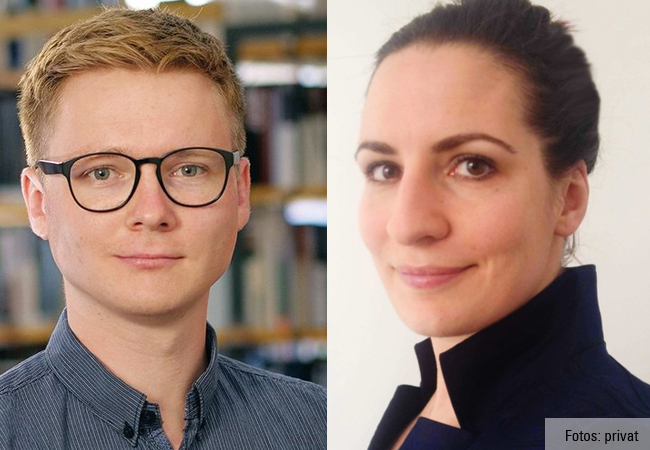
Interview: Pia Barth and Dirk Frank
The Research Institute Social Cohesion (RISC)
is a collaborative institute with partners in 11 locations throughout Germany. Over 200 scientists from various disciplines conduct research on questions and key challenges of social cohesion. RISC is funded by the Federal Ministry of Education and Research (BMBF). The Frankfurt section is situated at Goethe University’s Research Center Normative Orders and, as one of three offices, hosts the central RISC Knowledge Transfer Department.
https://fgz-risc.de


